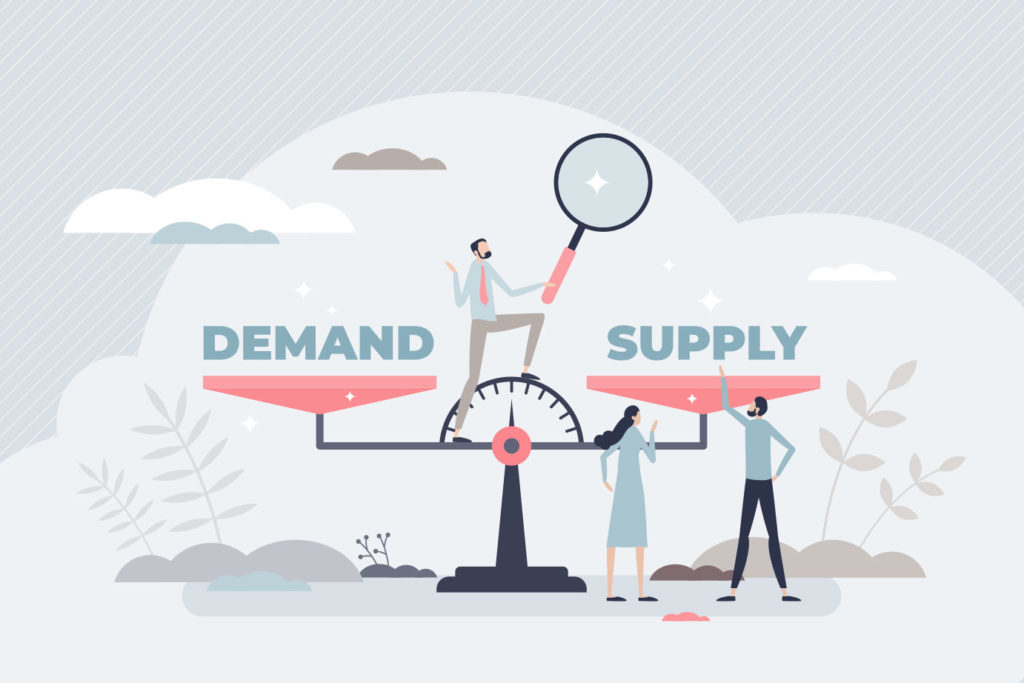Since the 2018 Farm Bill was passed, CBD has quickly risen in popularity. Not only have products containing cannabidiol (CBD) proliferated, but usage has also surged as more and more people come to appreciate its potential health benefits. Within this burgeoning market, it is perhaps not surprising that recently, prices for CBD have started going down.
There are four main factors that have led to CBD becoming more affordable, and we will explore each one in this article:
- Increased competition
- Effect of the pandemic
- Streamlined manufacturing and cultivation processes
- Increased acceptance
Increased Competition
One factor that has driven down CBD costs for consumers is the ever-increasing number of retail and other types of businesses entering the market. From big-box stores and pharmacies to local businesses and wellness websites, sales of CBD in everything from lip balms to sports drinks and even pet products have boomed.
This chart by Statista shows CBD product sales starting in 2014, which amounted to a relatively modest $108 million. The survey data shows that CBD sales increased by nearly 400% from 2014 to 2018. However, the projections in that survey for 2019 and beyond far underestimated actual industry growth that would surge as a result of the 2018 Farm Bill. In fact, revenue for 2019 exceeded the expected sales of just over $1 billion and topped $4 billion thanks to nationwide legalization.
Effect of the Pandemic
The lockdown during the COVID-19 pandemic closed many stores to foot traffic, and this slowed market adoption in 2020. CBD products were still relatively new, and fewer new customers were able to discover them on store shelves.
Many CBD companies tried to offset this by offering discounts or cutting prices outright. A study by Brightfield Group found that during the first half of 2020, a large number of CBD companies reduced the price of their CBD products by 15% to as much as 40% without sacrificing potency. As a result, during the pandemic lockdowns in 2020, consumer consumption of CBD jumped nearly 40%. These consumers were more informed about CBD products and their potential benefits.
While overall industry sales still rose to nearly $5 billion in 2020 compared to just over $4 billion in 2019, this was a slower rate of growth than in previous years.
Streamlined Manufacturing and Cultivation Processes
As retailers got into the business of CBD, hemp harvesting rose to the occasion, increasing their production to meet the demand. This led to a price war that drove down the costs of raw ingredients by a whopping 20% to 30% during 2019, according to a market report released by Brightfield Group. Additionally, CBD companies have been able to respond to demand by streamlining their manufacturing and cultivation processes.
Increased Acceptance
There is also potential for CBD to be regulated as a supplement by the FDA. In a March 2020 statement, the FDA hinted at allowing CBD to be marketed as a dietary supplement. This approval could be a game-changer for the CBD industry and would allow sellers to point to its potential benefits and function claims in marketing materials. The FDA has been tight-lipped about if or when this approval might happen and recently. For now, the agency is still reviewing ongoing CBD studies and getting public input.
As you can see, CBD has grown in popularity ever since it’s federal legalization in 2018. And as more states roll out industrial hemp programs it should only get more affordable to stock these fast-selling products.
Want to learn more about starting a business in CBD? Simply fill out the partner form for US Hemp Wholesale or contact us today!

